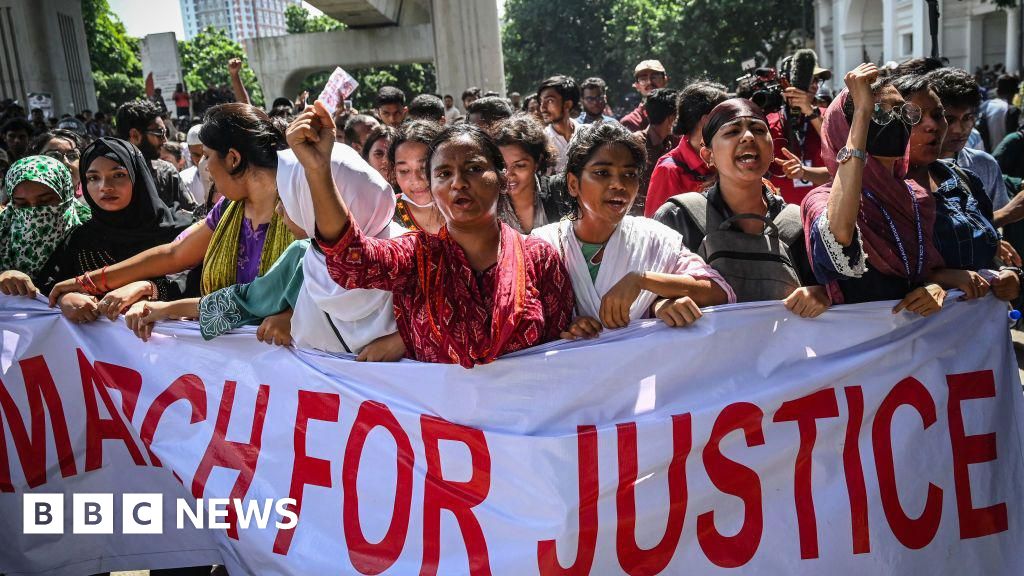Fresh violence has erupted between Bangladeshi police and student protesters demanding justice for victims of recent unrest.
An official in the northern city of Sylhet said demonstrators attacked police on Wednesday, forcing them to use tear gas. Clashes were also reported in the capital Dhaka and other cities.
Violence this month has left more than 200 people dead, most of them the result of police shootings. According to reports, nearly 10,000 people have been detained.
Photos sent to BBC Bangla showed police in riot gear and wielding batons setting up roadblocks and removing protesters, many of them women, from demonstrations.
Wednesday’s “March for Justice” was organized by the Student Anti-Discrimination Movement.
They said they were demonstrating against “mass killings, arrests, attacks and disappearances of students and people”.
Photos of the protests sent to BBC Bangla on Wednesday showed police in riot gear and wielding batons setting up roadblocks at demonstrations and removing protesters, many of them women.
Students have been protesting for more than three weeks against an attempt to restore quotas for civil service jobs for relatives of veterans of Pakistan’s 1971 war of independence.
One-third of the public sector jobs have been reserved for them, but on July 21, the Supreme Court ruled that only 5% of the jobs could be reserved.
The student movement believed the system was discriminatory and demanded merit-based recruitment.
Organizers demanded an apology from Prime Minister Sheikh Hasina for deadly clashes at the protests and the resignation of six ministers.
The government blamed the riots on the main opposition parties Bangladesh Nationalist Party and Jamaat-e-Islami.
The European Union has postponed talks with Bangladesh on a new cooperation agreement after criticizing the government’s crackdown.
On Tuesday, EU foreign policy chief Josep Borrell condemned the excessive use of force against protesters and called for those responsible to be brought to justice.
The now-delayed cooperation agreement was aimed at boosting economic ties between Bangladesh and the European Union, the country’s main trading partner.

